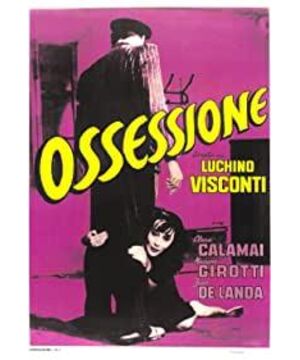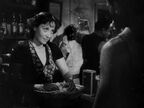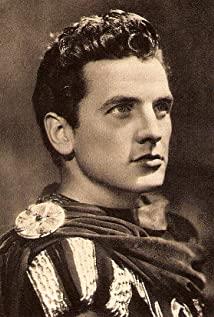The title has nothing to do with the text.
Revisiting Visconti's 1942 business card, The Sinking, noticed a passage that had not been noticed before.
This film by Visconti is adapted from the novel "The Postman Always Rings Twice" by American author McCain, which is set in the Great Depression era. Run away, but encountered a wandering entertainer lo Spagnolo (Spanish boy) on the train. This episode of the Spanish boy is not the content of the original book, but the original movie. He gave Gino a supplementary ticket, the two rented a bedroom, rolled cigarettes for Gino, bought new clothes, gave him a job to carry posters, and hoped that Gino would You can hang out with him all the time. Their time together, before Giovana reappears, appears as a poetic and joyous interlude in this sombre and gloomy film. I don't know what the audience at the time thought of this friendship between the two men, but today we can probably see very clearly that the Spaniard didn't just help Gino out of compassion, he was generous to Gino and care is clearly out of love and lust.
And I think this is Visconti's intentional "smuggling" under the double pressure of a fascist regime and an extremely strict film censorship system based on Catholic traditions. This image is so special, he is warm, optimistic, sincere, but also gentle, kind, and sad. It is completely different from the other characters in the film who are entangled and played by desire, even beyond the tone of the dark and oppressive era. I can't say he was a projection of Visconti's ego, but apparently he purposely created a one-of-a-kind image of homosexuality and had some (slim) hope in him.
Elio Marcuzzo (1917-1945), the Spanish boy actor, died tragically very young after only 14 films. He himself is a homosexual. At the end of World War II, various political forces were trying to gain an upper hand in Italy's brief power vacuum, and Elio and his brother were arrested in the chaotic reckoning of ex-fascist party members. According to sources, they were hanged by lynching and buried alive before they died. I don't know if his sexuality was the reason for his arrest, he died the day after his 28th birthday...
In the section of the hotel, the Spanish boy played by Elio persuaded Gino to forget about Giovana, and advised him that if he was with him, he would teach him that life is not only about love, Gino said to the Spanish boy: "I understand you , you have a lot of ideas that I never thought about, you said we should help each other, you would buy a ticket for a penniless poor man without asking for anything in return, and I, I just know that without her, I would Can't live." Maybe I'm being far-fetched, is this Visconti implicitly suggesting that the Spaniard is a communist? His sympathy for the poor, his unrequited help, and his different understanding of the value of life make him extremely special in the film. And the reason why he is called the Spaniard is because he has been "mixed" in Spain for many years before. It was 1942, why would an Italian go to Spain to "mix" for many years and then come back to Italy? Could it be that he was a fighter in an international column? Escaped Spain after losing the civil war to earn a living in incognito and bleak as a street performer? Of course, Visconti doesn't express all of this so nakedly, but it doesn't prevent me from opening my mind. He is a homosexual himself and a member of the Communist Party. After all, isn't the utopian ideal of "May the suffering of the world be liberated" also the ideal of homosexuals who have been insulted and damaged over the centuries?
And when it comes to homosexuality and the Communist Party, one cannot forget Pasolini and the embarrassing fact that neither of them is popular within the party, despite his own mockery and taunting of Visconti. Just as feminism and communism are never happy marriages, gays and communists seem to have a hard time getting along well. How can a revolutionary and progressive political force inherently transcend the limitations of patriarchy and patriarchy, and how can it truly look directly at and self-criticize the patriarchal society’s exclusion and exile of women, gay men, and the “other”? To this day, this question is still unresolved, but it does not mean that we should give up asking. A brilliant artist tries to deal with this proposition, and we have the precious Kiss of the Spider Woman, where the "straight man cancer" revolutionary finally fell in love and exchanged "destinies" with the "unconscious" gay man he despised. Revolutionaries die in the thoughts of their lovers, while gay men devote themselves to and die for a revolutionary act after being released from prison.
Not to forget Marcuzzo, not to forget that the Fascists massacred not only Jews, but also homosexuals, but also Communists, and all those exiled people who were considered aliens, others. If we forget them, we forget where we came from, and if we forget them, we are ready to face the same fate as them again one day.
View more about Obsession reviews







